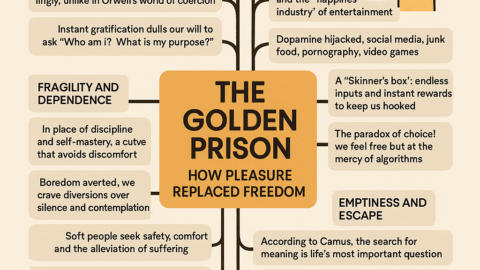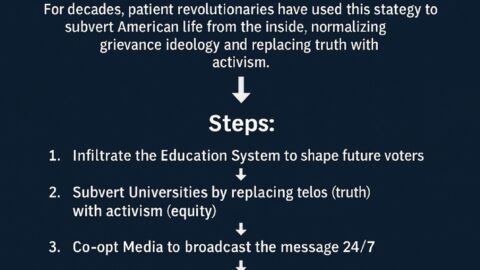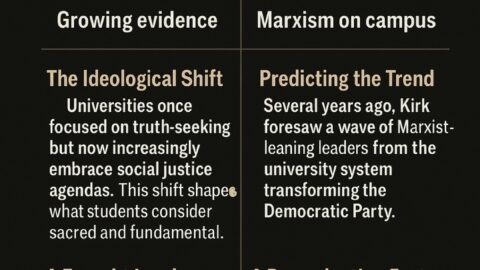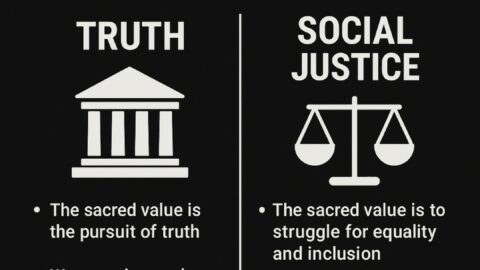The phrase “We have met the enemy and he is us,” popularized by the cartoonist Walt Kelly in Pogo, speaks to the idea that often, the greatest obstacles and threats we face come from within. In the context of cognitive dissonance, it highlights how we can sabotage ourselves emotionally, mentally, physically, and spiritually, without even realizing it. Cognitive dissonance is the mental discomfort experienced when holding two contradictory beliefs, values, or behaviors, leading people to justify or rationalize their actions to reduce that discomfort.
Here’s a detailed breakdown of how this self-sabotage happens and affects relationships:
1. Emotionally:
Cognitive dissonance and emotions: Emotionally, we often experience cognitive dissonance when our actions do not align with our emotional needs or beliefs. For example, we might engage in harmful behaviors or stay in unhealthy relationships, all while knowing they are damaging to us.
Self-sabotage through denial and avoidance:
- Ignoring emotional needs: We may be in denial about what we truly need emotionally, such as affection, respect, or boundaries. When our actions or choices don’t align with these needs, we feel internal conflict. To avoid that discomfort, we may rationalize staying in toxic situations, convincing ourselves that “things will change” or that “it’s not that bad,” rather than facing the truth.
- Suppressing emotions: Suppression of emotions, like anger or sadness, because they are seen as “inappropriate” or “weak,” can create dissonance between how we feel and how we behave. Over time, this leads to emotional burnout, distancing from others, and self-isolation.
Impact on relationships:
- Emotional distancing: By avoiding the discomfort of cognitive dissonance (e.g., telling ourselves that conflicts are “not worth addressing”), we distance ourselves emotionally. This destroys intimacy in relationships because vulnerability and emotional honesty are key components of trust and connection.
- Self-fulfilling prophecy: If we internally believe we are unworthy of love but consciously try to act as if we are in a healthy relationship, this dissonance can cause us to act in ways that push others away, fulfilling our own negative expectations and damaging relationships.
2. Mentally:
Cognitive dissonance and mental states: Mentally, cognitive dissonance can lead to significant stress and anxiety because the mind is trying to reconcile opposing beliefs or behaviors. This dissonance leads to irrational thinking patterns and distorted views of reality, as we try to resolve the internal conflict.
Self-sabotage through rationalization and justification:
- Rationalizing bad decisions: When we make decisions that go against our values (e.g., lying, cheating, or being lazy), we often justify these actions by distorting reality. For instance, we might tell ourselves that “everyone does it” or that “this one time doesn’t matter.” Over time, this erodes self-esteem and integrity, contributing to a negative self-image and feelings of guilt.
- Confirmation bias: We might seek out information that confirms our existing beliefs and ignore evidence that challenges them, reinforcing poor decisions and preventing growth. This keeps us stuck in unproductive or harmful mental patterns.
Impact on relationships:
- Blaming others: When cognitive dissonance arises from our own failures, we may shift the blame onto others to reduce our discomfort. This creates a dynamic of defensiveness and hostility in relationships, where we avoid accountability and fail to recognize our own contributions to problems.
- Erosion of communication: Poor mental habits, like denial and avoidance of conflict, lead to breakdowns in communication. We may not express our true thoughts or feelings, either because we fear confrontation or because we can’t reconcile our own internal contradictions.
3. Physically:
Cognitive dissonance and physical health: Cognitive dissonance also affects us physically, especially when we engage in behaviors that we know are harmful but continue to justify them. This could include unhealthy eating, lack of exercise, substance abuse, or neglect of self-care.
Self-sabotage through unhealthy habits:
- Neglecting self-care: We may know that certain behaviors (e.g., poor diet, lack of sleep, smoking) are harmful, but cognitive dissonance makes us rationalize them by saying “I don’t have time” or “I’ll quit later.” This disconnect between what we know is healthy and what we do creates stress and contributes to poor physical health.
- Stress and burnout: Constantly suppressing or ignoring cognitive dissonance—whether through work stress, toxic relationships, or unhealthy routines—leads to chronic stress, which manifests physically as fatigue, illness, and burnout.
Impact on relationships:
- Lack of energy or presence: Poor physical health affects relationships by draining our energy and mental bandwidth. When we are exhausted, stressed, or unwell, it’s difficult to be present for others or engage meaningfully. This leads to a cycle where neglecting self-care diminishes the quality of our relationships, which in turn exacerbates stress.
- Body image and self-esteem: Cognitive dissonance about body image (e.g., knowing we should be healthy but feeling inadequate) can lead to shame or insecurity, which affects our ability to be open and vulnerable in relationships. It may lead to distance or self-isolation.
4. Spiritually:
Cognitive dissonance and spiritual conflict: Spiritually, cognitive dissonance arises when our actions are at odds with our deepest values or beliefs about life’s meaning. For example, someone who believes in kindness and compassion might feel dissonance when acting out of anger or selfishness.
Self-sabotage through moral or spiritual compromise:
- Compromising core values: Acting against one’s spiritual or moral values creates deep internal conflict. For instance, lying or betraying others may be justified in the moment, but it undermines one’s spiritual integrity. Over time, repeated compromises diminish one’s sense of self-worth and spiritual identity.
- Spiritual numbness: Repeated failure to align with one’s spiritual beliefs can lead to a sense of spiritual numbness or emptiness. The person becomes disconnected from their higher purpose or sense of meaning, which further fuels negative behaviors and self-sabotage.
Impact on relationships:
- Loss of trust: When we act against our moral values, others may lose trust in us, leading to ruptures in relationships. Additionally, the internal dissonance can cause us to project our guilt or shame onto others, leading to defensive or hostile interactions.
- Spiritual disconnect from others: If cognitive dissonance causes us to ignore our spiritual needs (e.g., time for reflection, gratitude, or connection), we may become disconnected not only from ourselves but also from our relationships. We may fail to recognize or honor the spiritual depth in our connections, reducing relationships to superficial interactions.
How We Destroy Ourselves and Relationships:
- Denial and avoidance: Cognitive dissonance drives us to avoid confronting uncomfortable truths, both about ourselves and others. This can lead to prolonged emotional and mental strain, poor health, and strained relationships.
- Erosion of self-trust and integrity: Each time we justify actions that contradict our values or beliefs, we chip away at our self-esteem and sense of integrity. This internal damage prevents us from forming authentic and healthy relationships.
- Projection of guilt and blame: When we fail to resolve cognitive dissonance, we often project our unresolved guilt or internal conflict onto others, blaming them for our problems, which damages trust and intimacy in relationships.
- Undermining communication: The inability to reconcile internal conflicts results in poor communication, as we avoid difficult conversations or fail to express our true thoughts and emotions.
Ultimately, “We have met the enemy and he is us” applies to cognitive dissonance because the self-destructive behaviors, beliefs, and emotions we carry are often the root cause of the challenges we face, both internally and in our relationships. By confronting and resolving cognitive dissonance, we can begin to heal these rifts and build healthier, more honest connections with ourselves and others.
The phrase “We have met the enemy and he is us” reflects how individuals or groups can become their own worst enemy, particularly through internal struggles like ignorance and cognitive dissonance. Cognitive dissonance occurs when one’s beliefs and actions are in conflict, often leading to discomfort that many seek to avoid by rationalizing or ignoring the contradiction rather than facing it. This tendency to avoid uncomfortable truths can damage us emotionally, mentally, physically, and spiritually.
Emotionally, we may cling to false beliefs or relationships that no longer serve us, causing internal stress and external conflict. Mentally, this denial of reality hampers personal growth and decision-making. Physically, the stress of cognitive dissonance can manifest in health issues. Spiritually, resisting the need for deeper reflection and growth can prevent individuals from aligning with their true purpose or moral compass.
In relationships, cognitive dissonance may lead us to self-sabotage. For instance, in trying to “wake people up” from their ignorance, a person may face resistance, not only because others reject the message, but also because the person’s frustration or approach becomes confrontational. Over time, this strain can lead to isolation, as family, friends, or even entire communities may turn against them. This dynamic is common in situations where a person challenges deeply held beliefs or societal norms, and it often results in them being seen as the “villain” by those who feel threatened by change.
Thus, we often destroy our own relationships and opportunities for growth through a lack of self-awareness and by perpetuating our own cognitive dissonance, both internally and in our interactions with others.







